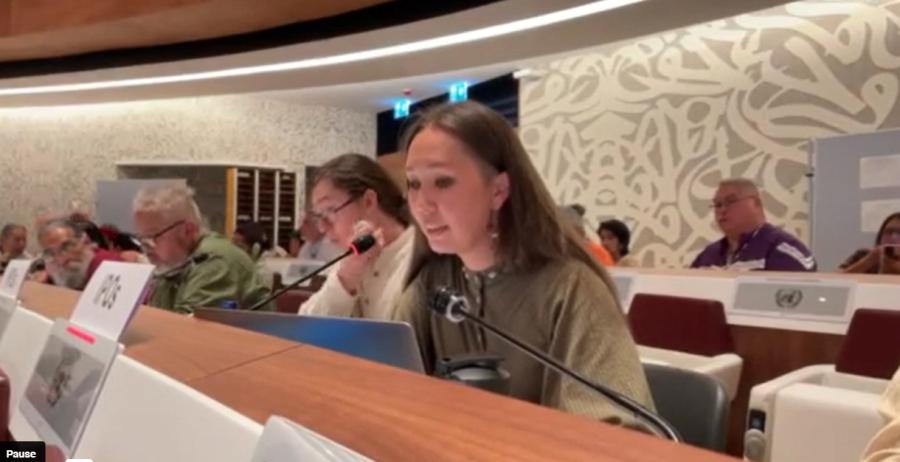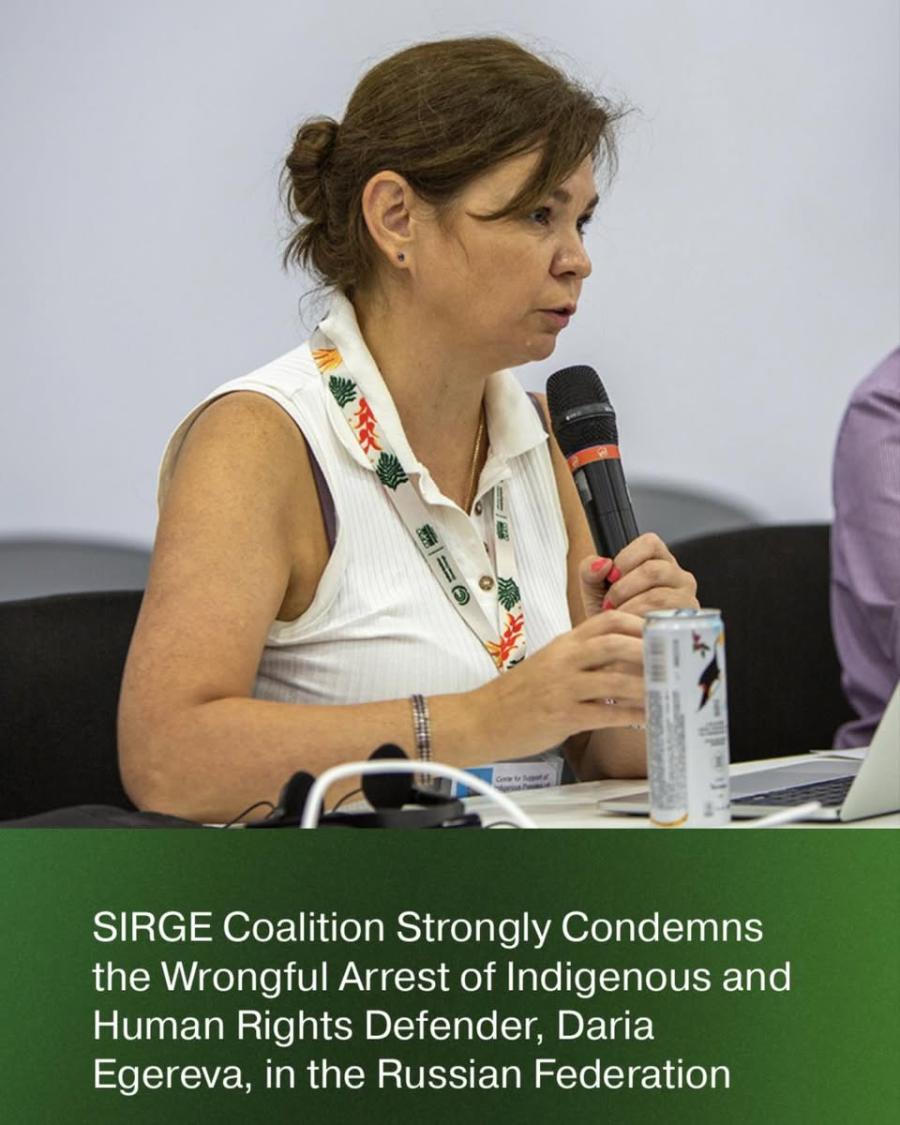On October 29, Cultural Survival welcomed five visitors from Siberia as part of a cultural exchange organized by the Massachusetts-based NGO, the Sacred Earth Network. (www.sacredearthnetwork.org) Founded almost 15 years ago, the Network aims to develop cooperative partnerships and cross-cultural learning opportunities for indigenous communities in Russia and North America. Exchange participants included:
- Lyudmila Ignatenko of the Yupik Nation, who directs the Union of Kamchatka Aboriginal Communities. She is fighting for the establishment of "territories of traditional nature use" in the Russian Far East. "These territories will allow the Yupik to continue our traditional hunting and fishing practices, to exercise our ancient spiritual practices, and to pursue economic activities, like the harvesting of our medicinal plants or ecotourism. Without such recognized territories, we are like foreigners in our own lands."
- Milan Kynyraa of the Republic of Tuva in southern Siberia, who manages the nature reserve Azas Zapovednik. He is in the process of establishing an ethno-cultural center to support the rebirth of the indigenous minorities' culture and spirituality and their traditional use of natural resources. "I really want our Tuvan traditions to help alleviate the global ecological catastrophe that worsens daily, and for my people to have the endurance and stamina of Native Americans who have survived conquest these last 500 years."
- Lyubov Krivileva, an Evenki of southern Siberia, the only indigenous representative in the National Hural of Buryat (Evenki district), who is working against overwhelming odds to strengthen legislation for the rights of indigenous minorities. "The problems we face are so numerous that perhaps only a spiritual approach to problem-solving is appropriate. The whole world is one organism and if some part of the organism is suffering then the whole also suffers. Each nation must feel the suffering of others, help each other, and heal the world."
- Erjen Khamaganova, a Buryat of southern Siberia, who is the coordinator of the newly formed Russian NGO Light of the Ancient Lands, which is devoted to the rebirth of indigenous culture in Siberia and the Russian Far East. "When it comes to development, official policy-makers do not take into consideration the values of indigenous peoples or their attachment to the land. The destruction of sacred sitesplaces of especially significant cultural and natural importance-threatens our identity and our existence as a people. It is urgent that laws be passed now to protect such sites. A gas pipeline proposed for Buryatia will destroy many of our sacred places."
- Gulvaria Shermatova, a Kumandin from the Altai region of Siberia, who is a founding member of the Kumandin Cultural-Ethnic Rebirth Center, and a regular participant in UN Indigenous Working Group sessions. "It is crucial that the Russian government recognize the rights of indigenous peoples. We Kumandin suffered forced resettlement in the 1960s and our economic situation is very poor. Unemployment and alcoholism are rife and I can see how the children are suffering. They receive nothing from their parents. The first step in dealing with our problems is for people to be proud of their traditions. The education of children is integral to this plan. We should teach the children to love their culture-to love their Kumandin heritage.
The session was also attended by Cultural Survival Totem Peoples Preservation Project Coordinator Dan Plumley, and Prof. James Bosson of Harvard's Department of East Asian Languages and Civilizations.
Article copyright Cultural Survival, Inc.



